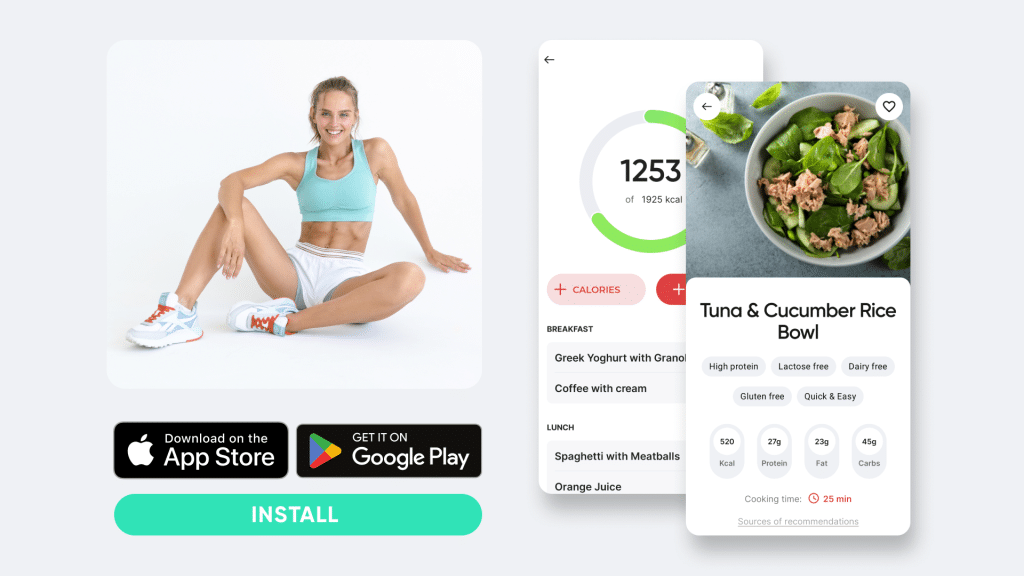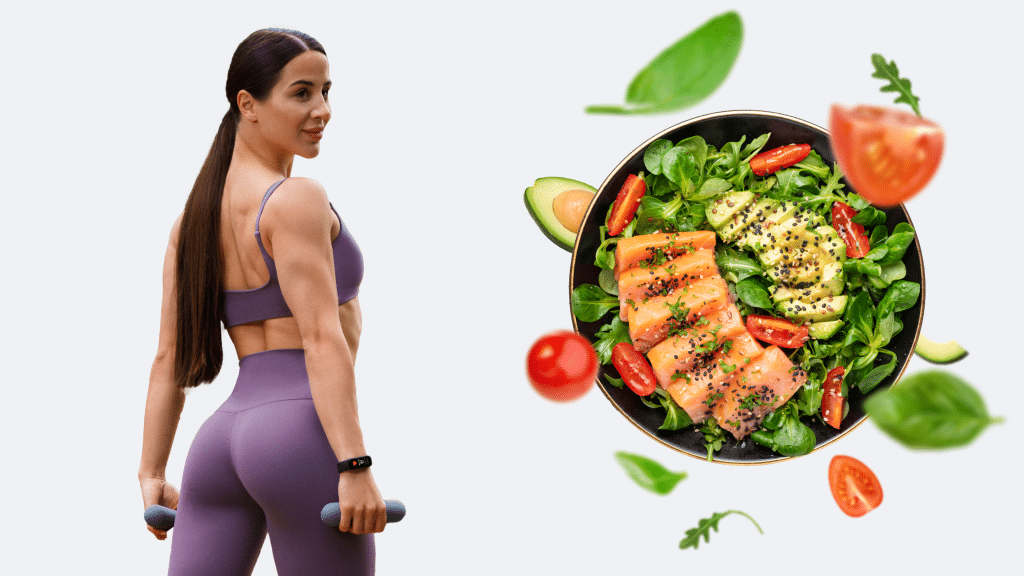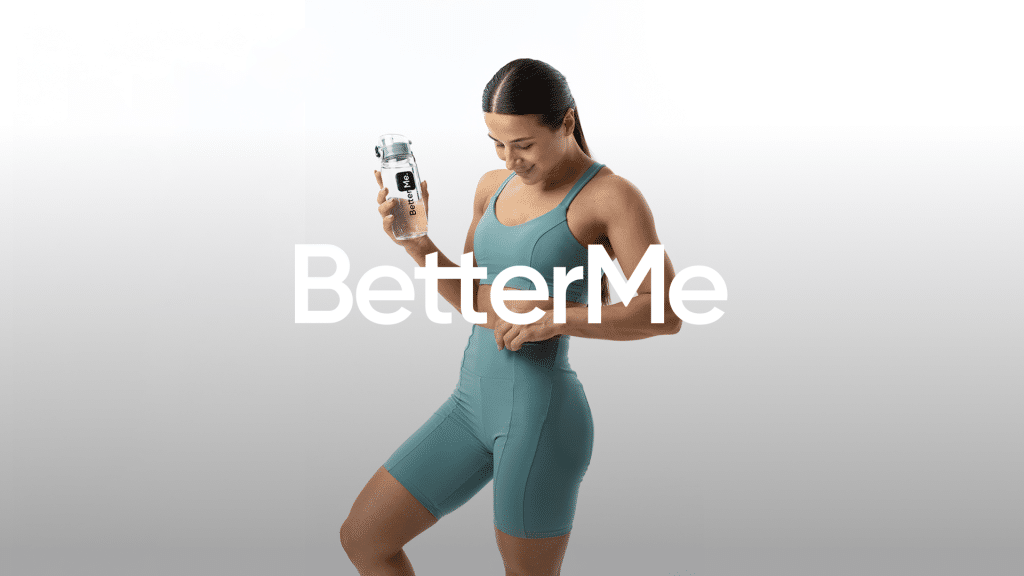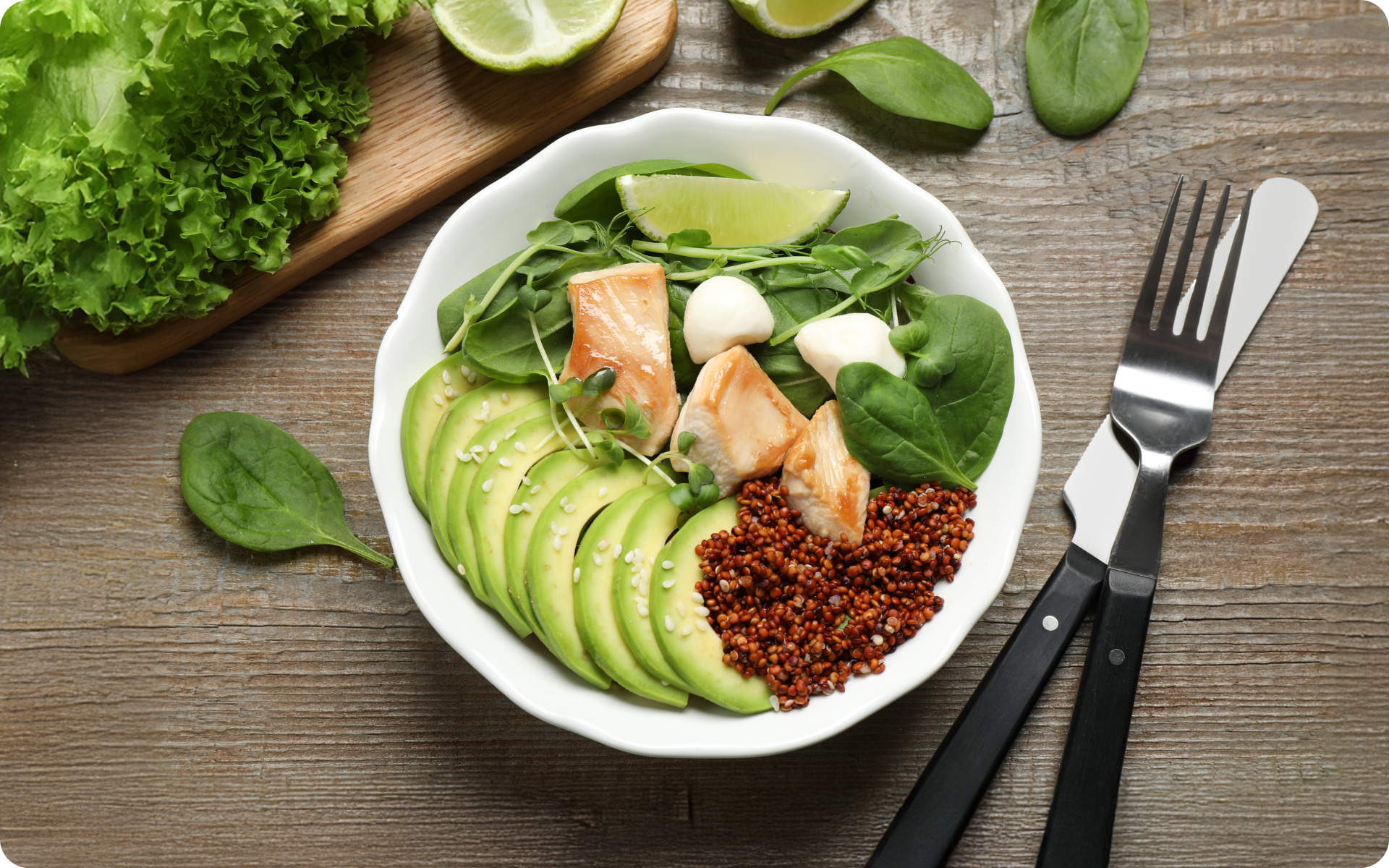Losing weight fast is a dream for everyone who is struggling to shed pounds for health reasons or possibly to achieve a desired physique. There are some fad diets that encourage rapid weight loss within a very short time that you may be considering using just to hasten the process. The 7-day military diet plan is one such eating plan that claims to assure people of speedy outcomes when they follow it precisely as designed.
Is the 7-day military diet safe? While proponents of fad diets concentrate on selling the positives, rarely do they let you in on the risks that are involved in following such weight loss meal plans. Find out everything there is to know about the 7-day military diet plan, including how it works, what to eat, pros, and cons, and if it’s safe for you to try.
What Is the 7-Day Military Diet?
Also referred to as the 3-day diet, the army diet, navy diet, and the ice cream diet, it is a low-calorie, low-fat, high-protein weight loss meal plan that entails a 3-day meal plan followed by 4 days off to help you lose considerable weight in just a week. Usually, this weekly cycle is repeated until you attain your weight goal. According to some proponents, the military diet meal plan was designed by the US military nutritionist for the soldiers to get into top shape quickly (12). However, this is just a myth. This diet is not in any way affiliated with any army or any government institution.
How Does the 7-Day Military Diet Work?
This meal plan is divided into 2 phases over a week. The first phase covers the first 3 days, where you have to follow the designed low-calorie meal plan for the 3 main meals of breakfast, lunch, and dinner. Note that it doesn’t allow snacking between the meals. The second phase covers the rest of the week and is more flexible.
7-Day Military Diet Plan: Nutrition
The 7-day military diet plan is high in protein and low in carbohydrates, fats, and calories. While a healthy, average adult requires between 1,600 and 3,000 calories per day depending on age, sex, and physical activity, the target daily calorie intake for this plan is 1,100–1,400 calories for the first 3 days (16). The second phase that covers the remaining 4 days is less restrictive. It entails eating healthy while maintaining a low calorie intake.
7-Day Military Diet Plan: Menu
This weight loss plan specifies what you should eat, when, and in what quantities. The meal plan for a 7-day military diet is as follows:
1st Phase – Very Restrictive First 3 Days
Here, you can’t consume any more than is recommended (16).
Day 1
Breakfast:
- 1 slice of toast with 2 tablespoons of peanut butter
- ½ a grapefruit
- 1 cup of coffee or tea (optional)
Lunch:
- 1 slice of toast
- ½ a cup of tuna
- 1 cup of coffee or tea (optional)
Dinner:
- 85 grams or 3 oz of any meat
- 1 cup of green beans
- 1 small apple
- ½ a banana
- 1 cup vanilla ice cream
Total: approximately 1,400 calories.
BetterMe will keep you laser-focused on your weight loss journey! Nutrient-packed meal plans, fat-blasting workouts, galvanizing challenges and much more. Try using the app and see for yourself!
Day 2
Breakfast:
- 1 slice of toast
- 1 hard-boiled egg
- ½ a banana
- 1 cup of coffee or tea (optional)
Lunch:
- 1 hard-boiled egg
- 1 cup of cottage cheese
- 5 saltine crackers
- 1 cup of coffee or tea (optional)
Dinner:
- 2 hot dogs with no buns
- ½ a cup of carrots and ½ a cup of broccoli
- ½ a banana
- ½ a cup of vanilla ice cream
Total: approximately 1,200 calories
Day 3
Breakfast:
- 1 1-ounce slice of Cheddar cheese
- 5 saltine crackers
- 1 small apple
- 1 cup of coffee or tea (optional)
Lunch:
- 1 slice of toast
- 1 egg, prepared as you like
- 1 cup of coffee or tea (optional)
Dinner:
- 1 cup of tuna
- ½ a banana
- 1 cup of vanilla ice cream
Total: approximately 1,100 calories
Replacements for the 3 Days of the Main 7-Day Diet Military Diet Plan
There are substitute foods you can consume in place of the above, particularly if you’re allergic to some ingredients or are gluten intolerant. Here are the alternatives for specific meals.
1 slice of toast can be replaced with one of the following:
- ½ cup of whole-grain cereal
- ½ an English muffin
- 1 tortilla
- 2 rice cakes
½ grapefruit can be replaced by another piece of fruit with similar calories.
1 cup of black coffee or tea replaced with:
- 1 cup of green or black tea
- 1 8 oz can of sugar-free Red Bull
½ cup of tuna replaced with:
- 1 piece of sushi grade tuna
- ½ cup of canned salmon
- 1 cup of canned tofu
- 1 cup of cottage cheese
- ½ cup of canned chicken
3 oz of any type of meat can be replaced with 3 oz of:
- Beans
- Lentils
- Tofu
- Fish or other seafood
1 cup of green beans can be replaced with 1 cup of any non-starchy vegetable, such as:
- Asparagus
- Baby kale
- Broccoli
- Tomatoes
Try to ensure that the portions you consume contain a similar number of calories as the main menu. For example, for a cup of greens that contains 31 calories, you may require more of a collard type green to amount to the same calories.
It’s important to drink plenty of water when following the military diet meal plan. You can drink as much tea or coffee as you want, as long as you don’t add sugar or cream, as this will increase the calories.
Read more: Keto Diet for Seniors: Separating Fact from Fiction
2nd Phase – Days 4 to 7
Healthy eating is encouraged. There are no food restrictions and snacks are allowed. For example, you can eat black bean burgers or shrimp fried rice. However, you should limit the portion sizes and try to eat less than 1,500 calories a day. Note that throughout the 7 days, artificially sweetened beverages are discouraged. An example of a 1,200-calorie diet plan is:
Breakfast:
- 1 cup green tea
- 2 spoons unsweetened Greek yogurt
- 5 almonds
Morning snack:
- Oatmeal
- 1 cup lemonade with no sweeteners
Lunch:
- Baked or grilled chicken breast
- ½ cup cooked brown rice
- 1 cup steamed vegetables – no potatoes
Afternoon snack:
- Celery sticks with low-fat hummus
Supper:
- Grilled salmon
- 1 cup steamed vegetables – no potatoes
- 1 cup lemonade with no sweeteners
- ½ cup quinoa
Dessert:
- Banana and raspberry smoothie made using ½ cup of raspberries and the same quantity of bananas
Foods to Avoid While on the 7-Day Military Diet
The military diet doesn’t specify any foods to avoid, although for the first 3 days, you’re expected to only consume the specific foods in the meal plan or appropriate alternatives.
Discover the science behind the 7-day no-sugar challenge in one of our earlier articles.
How Much Weight Can I Lose on a 7-Day Military Diet Plan?
The plan claims to help you lose up to 10 pounds in a week (8). However, the weight that is shed is mostly water weight and not fat.
Water weight is lost quickly when the glycogen stores in the body decline, usually when you restrict calories and/or carbohydrates. You’ll most likely regain this weight when you start eating as usual.
Most guidelines suggest aiming for 1-2 pounds per week for safe and sustainable weight loss. To achieve this, a calorie deficit of 500-1,000 calories per day is suggested, which means that you’re eating 500-1,000 fewer calories than you burn each day. For some people, the military diet may fall within their target calorie intake range. However, it’s still highly restrictive and not ideal for everyone. There are many ways to achieve a calorie deficit.
Read more: Vegan Keto Diet: Exploring a Plant-Based Approach to Low-Carb Living
Benefits of a 7-Day Military Diet
- Potential quick weight loss due to restrictive calorie intake.
- It’s free and very simple to follow the routine. You don’t need an advanced book to know what to do.
- Cheap – no expensive foods or supplements required.
- Everything is outlined, which saves you the stress of what to eat.
- It’s a high-protein diet that helps you feel full, maintains muscle mass, and gives you energy.
Cons and Associated Risks
All that glitters is not gold, and in this case, the outcomes of following the 7-day military diet plan menu sound too good to be true. The downsides of the 7-day military diet are:
- This plan has limited menu alternatives and you must stick to the specified foods.
- According to the Academy of Nutrition and Dietetics, restricting yourself from certain foods places you at risk of losing out on nutrients that can’t be replaced entirely by supplements (3).
- The 7-day military diet plan emphasizes some ultra-processed foods that contain a lot of salt, added sugar, and saturated fat. These include saltine crackers, bread, hot dogs, ice cream, and cheese. Therefore, it’s important to ensure that you don’t consume more sodium than recommended, i.e. 2,300 milligrams a day (11).
If you’re curious about the calorie-deficit meal plan, check out our earlier article
Controversies Related to the 7-Day Military Diet Plan
The 7-day military diet plan is a very controversial plan, starting with the name that has nothing to do with the armed forces. You would also expect it to encourage mental and physical fitness through strength training and other exercises. This is because the armed forces are associated with high levels of endurance activities such as running and swimming, and shorter, explosive movements such as weightlifting and sprinting (13). However, this is not the case with this meal plan. Some proponents encourage only walks.
According to a publication in Philosophical Transactions of the Royal Society B: Biological Sciences that analyzed nutrition in the military, it was established that proper nutrition is essential for military performance (19). As it’s not a balanced or nutritionally adequate diet, the 7-day military diet plan is likely just a name that was coined to increase its popularity and make the method seem legitimate. Other controversies surrounding this meal plan include:
- There are no studies on the 7-day military diet. Although this eating plan is not based on evidence, proponents have testimonies that prove it works, claiming that the results are due to the combination of different foods in the 7-day diet plan menu. According to these claims, the foods consumed increase metabolism and burn fat. However, these claims have never been scientifically tested.
- Consuming below 1,400 calories a day may make it difficult for you to have enough energy to work out. Healthy weight loss diets commonly recommend a combination of healthy meals and exercises for an overall lifestyle change.
- In place of grapefruit, the 7-day meal plan allows substitution with a glass of baking soda for an alkaline environment. The science behind this does not add up. You cannot alter the pH of your body by eating acidic or alkaline foods. It would make more sense if one fruit was swapped with another that is similar in calories and nutrients.
- Most of the recommended foods are low in fiber, which is against most basic advice for weight loss. According to the American Heart Association, including high-fiber foods in your diet makes you full without extra calories (6). Not eating enough fiber can also lead to constipation.
- You’re convinced that the diet worked, but only a bunch of water weight is lost. When you gain weight again, you go back to it because you believe it to be the solution. You’ll be addicted and never consider expert-recommended and medically approved healthy weight loss meal plans.
- Vanilla ice cream is high in added sugar. This meal plan recommends the daily intake of ice cream, rather than healthy natural sugar options such as fruits.
Looking for a way to break the vicious cycle of weight loss and tone up all the jiggly parts? Watch the extra pounds fly off and your muscles firm up with the BetterMe: Health Coaching app!
Safety and Sustainability of the Military Diet Meal Plan
Should I follow the military diet for 7 days? This type of dieting for one week is probably not very harmful for an otherwise healthy adult as the time is too short to cause a lasting health issue. However, repeatedly following the 7-day military diet may put you at risk of being malnourished due to the limited calorie intake.
In addition, promoting ultra-processed foods such as ice cream and hot dogs isn’t ideal. These foods are generally low in filling nutrients such as protein and fiber, but high in added sugar, sodium, and unhealthy fats.
Another problem with this diet is that its highly restrictive nature isn’t sustainable and doesn’t encourage long-term healthy eating habits or help build a healthy relationship with food.
Who Can and Who Can’t Partake in a 7-Day Military Diet Plan?
This diet may be considered by healthy adults who want to lose weight quickly for a special event such as a wedding. You should talk to your healthcare provider before trying this diet, because it isn’t safe for everyone. If you decide to follow this plan, understand that it may help you lose weight quickly, but not for long. Therefore, it’s not recommended for lasting weight loss.
On the other hand, the National Institute of Diabetes and Digestive and Kidney Diseases strongly discourages people over 50 years of age from taking part in any extremely low-calorie diet such as the 7-day military diet.
We all want a quick fix for our weight loss issues, and the 7-day military diet promises this. However, this is an unsustainable diet because although it’s easy to follow, there are no long-term lifestyle changes for sustainable, long-term weight loss. Remember, the quality of calories you consume is as important as the quantity. Therefore, this isn’t the best plan to follow if you want to attain your weight loss goals.
Rome wasn’t built in one day. Similarly, you didn’t gain weight overnight, and you can’t lose weight overnight. Crash diets such as the 7-day military diet concentrate on short-term outcomes, which won’t be helpful toward your weight-loss goal in the long term. Therefore, we would encourage you to opt for a healthy, long-term weight loss plan such as one that involves lifestyle changes such as the Mediterranean diet.
It’s not recommended to follow the military diet every day without a break. Following it for more than 3 days can have serious consequences, such as nutritional deficiencies, potential muscle loss, and a gradual slowing of the metabolism as the body tries to adjust to the lower energy intake. This can make further weight loss harder, and increase the chances of the weight bouncing back (15). Such a restrictive diet could promote unhealthy eating patterns. Tuna is a low-calorie, high-protein food that helps preserve muscle mass while cutting calories. If you don’t like or can’t eat tuna, try other lean protein sources such as grilled chicken, cottage cheese, or tofu. These foods offer similar nutritional benefits for your military diet plan. For example, grilled chicken breast contains approximately 165 calories per 100 grams, which is fairly close to tuna’s 132 calories per 100 grams (16). Yes, you can drink coffee while on the military diet, as long as you keep it low in calories. Stick to black coffee without any added sugar, cream, or milk. The caffeine in coffee may even offer a slight metabolic boost and help with fat-burning (17). However, drinking too much coffee can have side effects, such as increased worry, dehydration, and sleep disturbances (18). Eating Ice cream on the military diet may seem surprising at first. This treat can make the diet more enjoyable and easier to stick to in the short term. Ice cream also provides certain nutrients, such as calcium and vitamin D, which are important for overall health. FAQs
Should you follow the military diet every day?
What can you use instead of tuna in the 3-day military diet?
Can you drink coffee while on the military diet?
Why is ice cream included in the military diet?
The Bottom Line
DISCLAIMER:
This article is intended for general informational purposes only and does not serve to address individual circumstances. It is not a substitute for professional advice or help and should not be relied on for making any kind of decision-making. Any action taken as a direct or indirect result of the information in this article is entirely at your own risk and is your sole responsibility.
BetterMe, its content staff, and its medical advisors accept no responsibility for inaccuracies, errors, misstatements, inconsistencies, or omissions and specifically disclaim any liability, loss or risk, personal, professional or otherwise, which may be incurred as a consequence, directly or indirectly, of the use and/or application of any content.
You should always seek the advice of your physician or other qualified health provider with any questions you may have regarding a medical condition or your specific situation. Never disregard professional medical advice or delay seeking it because of BetterMe content. If you suspect or think you may have a medical emergency, call your doctor.
SOURCES:
- 10 Day Military Diet – A Complete Diet (n.d., militarydietpro.com)
- A 3,000-Calorie Diet: Benefits, Weight Gain, and Meal Plan (2019, healthline.com)
- Academy of Nutrition and Dietetics reinforces importance of food, not supplements (2013, medicalxpress.com)
- Does Junk Food Slow Down Your Metabolism? (2017, healthline.com)
- Does the Military Diet Actually Work? Yes, but don’t do it.(2020, nerdfitness.com )
- Fiber Up, Slim Down (2018, heart.org)
- Is the 3-Day Military Diet Safe and Effective for Weight Loss? (2020, everydayhealth.com)
- Military Diet (n.d., themilitarydiet.com)
- Military Diet Review: My 7 Day Results On The 3 Day Diet (2020, operationmilitarykids.org)
- Patricia Deuster, PhD, MPH (n.d., usuhs.edu)
- Salt (2020, cdc.gov)
- The Military Diet: A Beginner’s Guide (with a meal plan) (2017, healthline.com)
- The war on the military’s diet (2019, nypost.com)
- Weight loss (2020, mayoclinic.org)
- Maintenance of lost weight and long-term management of obesity (2018, ncbi.nlm.nih.gov)
- Chicken, broilers or fryers, breast, meat only, cooked, roasted (2019, fdc.nal.usda.gov)
- Caffeine and coffee: their influence on metabolic rate and substrate utilization in normal weight and obese individuals (1980, ncbi.nlm.nih.gov)
- Caffeine (n.d., medlineplus.gov)
- Military nutrition: Maintaining health and rebuilding injured tissue (2011, researchgate.net)















